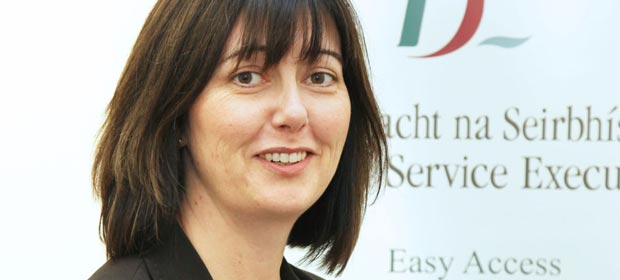The aim of the new HSE Emergency Medicine Programme is to improve the safety and quality of patient care in Emergency Departments and to reduce waiting times for patients, Dr. Una Geary, Consultant in Emergency Medicine at St. James’s Hospital, Dublin and Programme Lead, told the HMI Dublin Mid Leinster Forum held in the Dublin Dental University Hospital.
The Programme will develop models of care, best practice clinical guidelines, process measures and quality indicators for Emergency Medicine. It will draw upon best practice recommendations developed by other relevant QCCD programmes and will be implemented in an integrated manner with the Acute Medicine, Critical Care, Surgery and Medicine for the Elderly programmes.

The objectives of the Emergency Medicine Programme are to:
- Define and develop Emergency Care Networks within a National Emergency Care System with key collaboration between EDs and Pre-hospital care.
- Increase Consultant provided care in EDs.
- Introduce clinical guidelines for the top 20 emergency conditions (e.g. pain management, abdominal emergencies, head injuries etc.).
- Define quality indicators and process measures.
- Support implementation of QCCD National Programmes at 12 target sites (ten of which will have four or more Consultants in Emergency Medicine) with the achievement of six hour total ED Time target.
- Develop Paediatric Emergency Medicine
- Disseminate existing best practice through regional workshops, gap analysis and feedback
- Carry out workforce analysis and planning
- Develop multidisciplinary teams in Emergency Care
The Programme deliverables are:
- Standardised care in every ED
- Guidelines for top 20 conditions
- All critically ill patients will be seen by a Consultant in Emergency Medicine when on-site and Consultants will provide on-call support out-of-hours.
- Reduced numbers of patients on trolleys in EDs, which is achievable through implementation of the Acute Medicine and Chronic Disease Programmes, will save at least one life per week.
The Emergency Medicine Working Group consists of:
- Dr. Una Geary, Programme Lead
- Dr Fergal Hickey, Regional Lead
- Dr Gareth Quin, Regional Lead
- Dr Conor Egleston, Regional Lead
- Dr Gerry Mc Carthy, Regional Lead
- Dr John Mc Inerney, Regional Lead
- Professor Ronan O’Sullivan, Paediatric EM
- Dr Cathal O’Donnell, Pre- Hospital Care
- Mr Geoff King, Programme Member – PHECC
- Ms Maire Brid Casey, Programme Member – AHP
- Ms Fiona Mc Daid, Programme Member – Nurse Lead
- Ms Mary Forde, Programme Member – Nurse Lead
- Ms Valerie Small, Programme Member – ANP Representative
- Ms Suzanne Byrne, Programme Member – Service Planner and
- Ms Moira Flynn, Programme Member – Clinical Informationist

